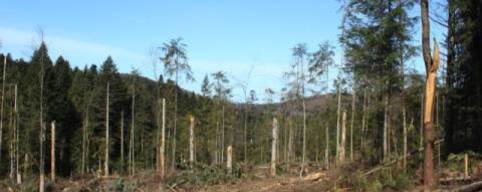

A report by the European Environment Agency indicates a significant increase in the use of forest biomass in the next decade. It is predicted that its use could triple by 2030. Although biomass is seen as a renewable energy source, the potential increase in its use is a cause for concern among environmentalists. In particular, there is a risk that intensified use of forest resources will lead to accelerated deforestation and ecosystem degradation, which could have long-term negative consequences for biodiversity and forest carbon sequestration.
Biomass was initially promoted in the European Union as a key tool in the fight against global warming. However, as research provides more and more data, it is becoming increasingly clear that burning biomass may not have the intended climate benefits and, on the contrary, may lead to unintended environmental damage.
Experts warn that the EU's ambitious targets for carbon sequestration by forests could be jeopardized if no steps are taken to change current priorities in forest management. It is crucial to preserve existing forests and restore them instead of exploiting them intensively for energy purposes. The long-term effects on the climate could be counterproductive if the protection and regeneration of forest ecosystems is not prioritized.
In the context of these challenges, the environmental crisis is becoming increasingly urgent. This requires not only new strategies for managing natural resources, but also increased financial support for nature conservation and biodiversity. International cooperation and the exchange of best practices are also important to help achieve a more sustainable use of natural resources.
Soil degradation is another major problem associated with intensive land use. The loss of organic carbon from the soil not only reduces its fertility, which has a negative impact on agricultural production in Europe, but also leads to the release of CO2 into the atmosphere. To counteract this phenomenon, the European Union offers farmers various forms of support aimed at improving the quality of agricultural production and increasing soil protection. It is essential to consistently implement programs for the restoration of soil quality, which will have a real impact on reducing greenhouse gas emissions.
According to a report by the European Environment Agency, existing deforestation practices have a negative impact on the achievement of EU climate goals. Appropriate policies and effective implementation of nature conservation regulations are crucial for the future of sustainable development in Europe. Therefore, it is necessary to constantly monitor the impact of these activities and adapt them to changing environmental and climatic conditions, which will ensure effective protection of natural resources for future generations.



